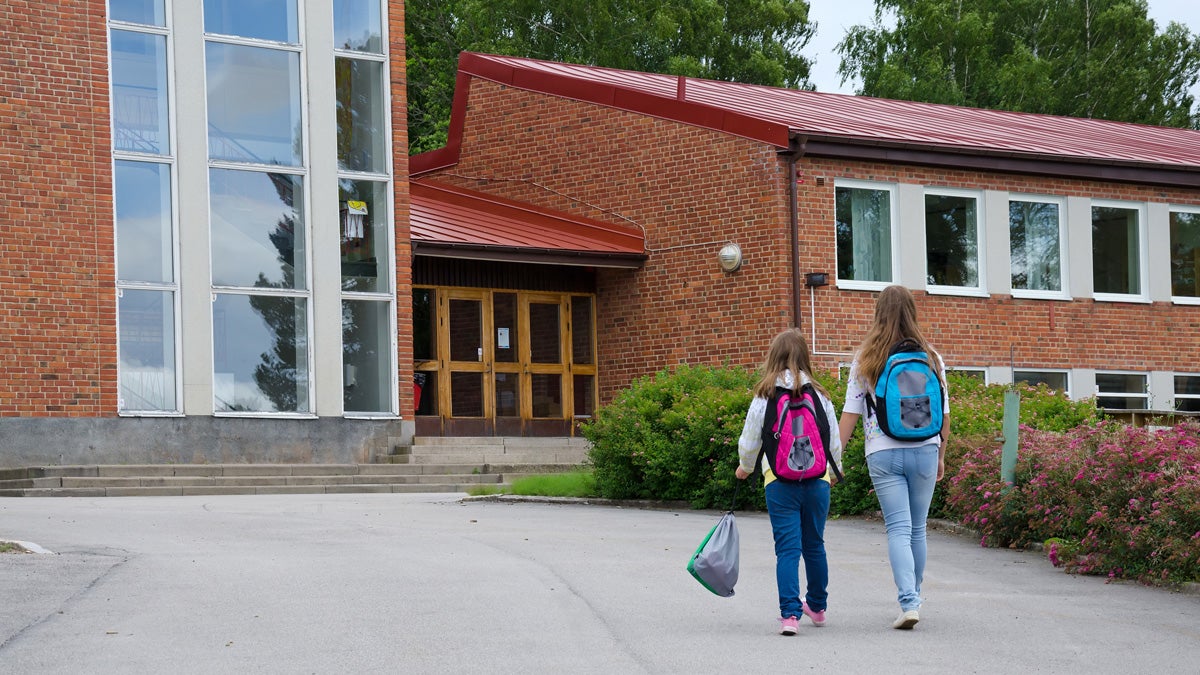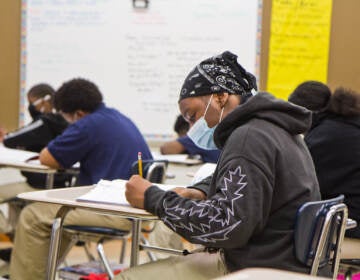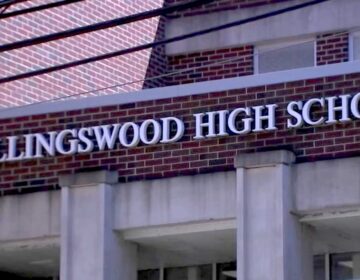Pa. school districts brace for prolonged state budget battle
Listen Photo via ShutterStock) " title="shutterstock_149854841" width="1" height="1"/>
Photo via ShutterStock) " title="shutterstock_149854841" width="1" height="1"/>
(Photo via ShutterStock)
The school year is soon to begin, and districts across the state of Pennsylvania are faced with a troubling proposition: How do you stay afloat when a very large chunk of your budget is nonexistent?
School leaders face this question as first-year Gov. Tom Wolf, a Democrat, and leaders of the Republican-held state House and Senate continue to disagree about how to frame the state’s spending plan.
As the first day of classes draws near, districts have not received any of the state aid that would typically begin flowing in August.
“Right now, we’re obviously not getting any money in – that has a huge effect on the district,” said Gary Kiernan, business manager for the Susquehanna Community School District.
Susquehanna, a small, rural district in Northeastern Pennsylvania nestled among natural gas fracking rigs, typically gets more than two-thirds of its funding from the state government.
To get through the first few months of school without that aid, Susquehanna will have to deplete its cash reserves. The district relies on a yearly budget of $14 million and currently has an unassigned fund balance of about $600,000.
“Luckily, we do have some fund balance to lean on,” said Kiernan.
But not all districts have fund balances. Some drained them as a way to avoid raising taxes in the past few years.
Others have long been fiscally stressed for a host of reasons.
In Philadelphia, where the district receives about half of its funding from the state, the budget impasse is pushing leaders to take a $275 million loan to avoid cuts and keep up with payroll.
The loan will demand an additional interest payment of about $1million.
The loan, though, won’t be enough, said district spokesman Fernando Gallard.
“We will take a look at which vendors we can delay payment — or we can provide partial payment — to,” said Gallard. “These are vendors that are large vendors, not our small business, not our small vendors.”
But even that approach will only get the district through the first two months.
“In November, things get much more difficult,” Gallard added.
The Philadelphia district still needs an additional $18 million in order maintain last year’s “inadequate” status quo. Officials assume, though, that the state will ultimately provide at least that much, so no cuts are planned.
Philadelphia officials also hope that Wolf will achieve his full proposal for a statewide education increase. Wolf seeks $500 million in new funding for K-12 basic and special education. About $159 million of that would go to Philadelphia, by far the largest district in the state and responsible for more than 200,000 students.
Charters share the burden
Even though the Bethlehem district has a funding balance, it took an unprecedented action to get through the impasse.
State law says that districts must give area charter schools 100 percent of their expected funds even if the state’s share isn’t coming through. This week, the Bethlehem school board unanimously voted to cut charter payments by the same percentage of its total budget being held up by the state.
“It was a statement, frankly, that if public school districts are, right now, having to function without their state subsidy, then why should charter schools receive 100 percent of their subsidy from the school districts?” said Bethlehem Area School District Superintendent Joseph Roy.
Until the state passes a budget, Roy said the district will send charter schools only 70 percent of what they are owed.
“So if the bill is $100 right now, we’re paying $70 of it,” he said.
Pennsylvania Coalition for Public Charter Schools executive director Bob Fayfich said Bethlehem’s action is not unanticipated.
“We advised our members months ago to start putting money in their unassigned fund balances to cover the contingency of a budget not being passed,” he said.
When a district withholds payment from a charter school, the charter can appeal to the Pennsylvania Department of Education. If the department sides with the charter, it deducts funding from the school district’s state subsidy and sends it directly to the charter.
In this case, though, charters in Bethlehem will have little recourse.
“There is no state subsidy,” said Roy. “That’s the whole point of it. So there’s nothing for the state to deduct it from.”
Planning problems
The Valley Grove School District is another that plans to cover the missing state aid with its fund balance.
Situated in Northwestern Pennsylvania about halfway between Pittsburgh and Erie, Valley Grove is another small rural district that relies in the state for about 70 percent of its budget.
Superintendent Jeffrey Clark said the budget impasse timing is particularly awkward, given widespread anxiety about students’ ability to meet the state’s more rigorous testing requirements.
“As you reduce staff and then you end up with more responsibilities and more mandates, it puts more on the staff that we have,” said Clark. “There is a concern building that we’re maxing out.”
Spring-Ford School District in Montgomery County, which receives about 18 percent of its funding from Harrisburg, won’t be forced to dip into its reserves until October.
But school board president Joseph Ciresi is frustrated that state officials can’t reach consensus — leaving volunteer school board members scrambling to guess what will come.
“Volunteers versus state officials — you better get your stuff together,” he said of lawmakers. “We should know what we’re getting before going to our taxpayers … this process is backwards.”
School administrators interviewed said they see a common-sense solution to resolving the state budget negotiations.
They’d like to see Wolf get the major school funding increases he seeks, paired with savings in pension costs under a plan being offered by Republican legislative leaders that would reduce retirement benefits for future teachers and state workers.
Districts across the state have seen their pension liability balloon in recent years in the wake of two recessions and a series of bad bets by state politicians.
“We’re used to the chaos in Harrisburg,” said Kiernan from the Susquehanna Community School District. “I’m rooting for Wolf to get these problems fixed. It would be nice if they get the pensions fixed, but I’m not going to hold my breath.”
Wolf wants to fund his education increase by pairing local property tax relief with hikes on personal income and sales taxes. He also seeks an statewide natural gas drilling tax and an increased levy on cigarettes.
Republican leaders, who have rejected Wolf’s tax plan, favor a pension system overhaul and privatizing the state liquor system.
Wolf has proposed that any final budget agreement include funds to repay school districts for interest accrued on loans taken out as a result of the tardy budget.
WHYY is your source for fact-based, in-depth journalism and information. As a nonprofit organization, we rely on financial support from readers like you. Please give today.





